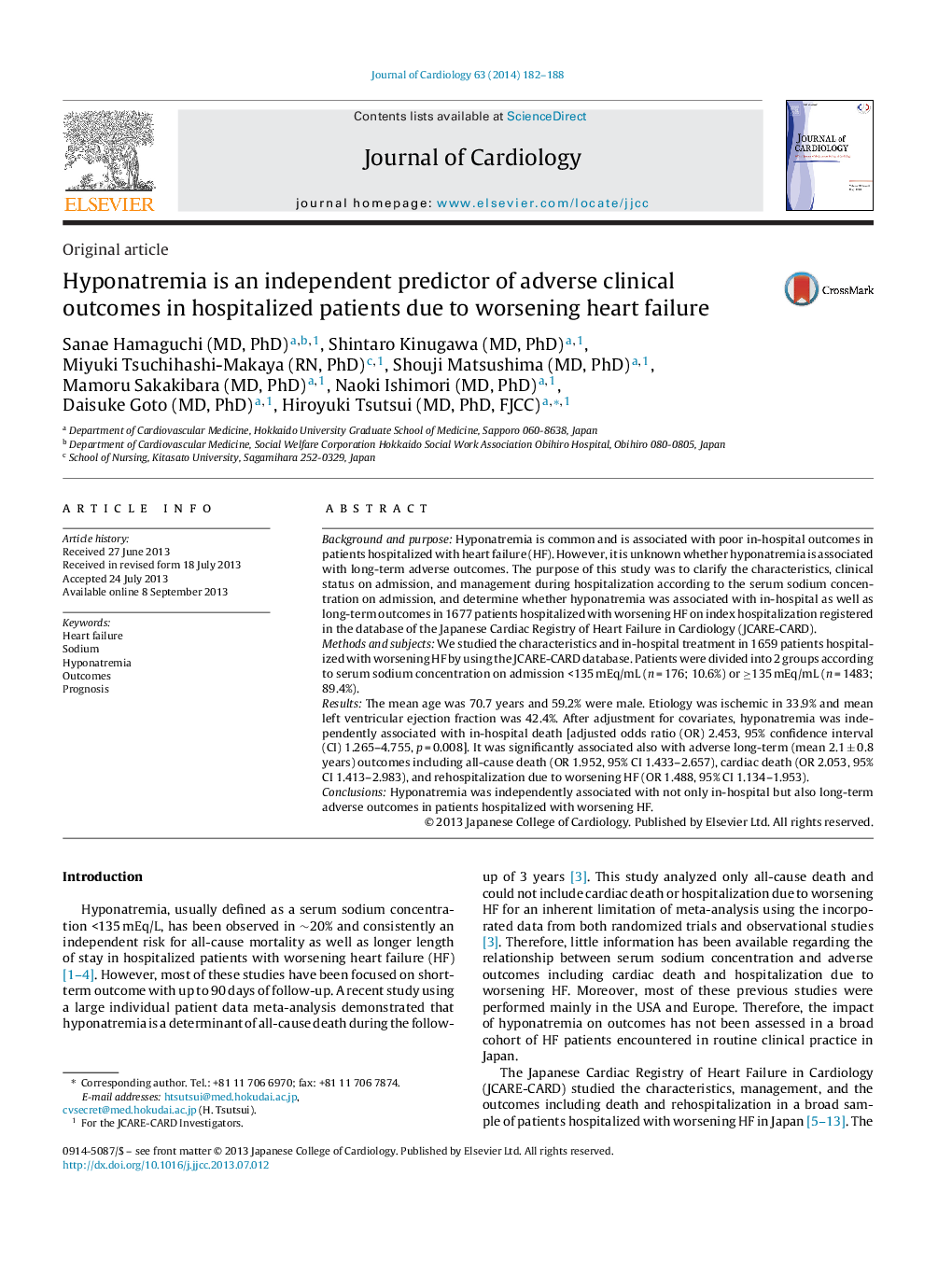| Article ID | Journal | Published Year | Pages | File Type |
|---|---|---|---|---|
| 2963048 | Journal of Cardiology | 2014 | 7 Pages |
Background and purposeHyponatremia is common and is associated with poor in-hospital outcomes in patients hospitalized with heart failure (HF). However, it is unknown whether hyponatremia is associated with long-term adverse outcomes. The purpose of this study was to clarify the characteristics, clinical status on admission, and management during hospitalization according to the serum sodium concentration on admission, and determine whether hyponatremia was associated with in-hospital as well as long-term outcomes in 1677 patients hospitalized with worsening HF on index hospitalization registered in the database of the Japanese Cardiac Registry of Heart Failure in Cardiology (JCARE-CARD).Methods and subjectsWe studied the characteristics and in-hospital treatment in 1659 patients hospitalized with worsening HF by using the JCARE-CARD database. Patients were divided into 2 groups according to serum sodium concentration on admission <135 mEq/mL (n = 176; 10.6%) or ≥135 mEq/mL (n = 1483; 89.4%).ResultsThe mean age was 70.7 years and 59.2% were male. Etiology was ischemic in 33.9% and mean left ventricular ejection fraction was 42.4%. After adjustment for covariates, hyponatremia was independently associated with in-hospital death [adjusted odds ratio (OR) 2.453, 95% confidence interval (CI) 1.265–4.755, p = 0.008]. It was significantly associated also with adverse long-term (mean 2.1 ± 0.8 years) outcomes including all-cause death (OR 1.952, 95% CI 1.433–2.657), cardiac death (OR 2.053, 95% CI 1.413–2.983), and rehospitalization due to worsening HF (OR 1.488, 95% CI 1.134–1.953).ConclusionsHyponatremia was independently associated with not only in-hospital but also long-term adverse outcomes in patients hospitalized with worsening HF.
